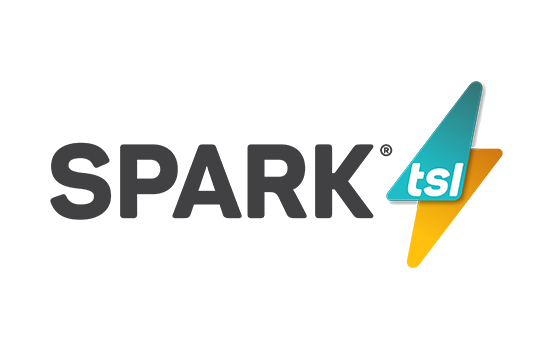 Leading WiFi provider WiFi SPARK is rebranding its healthcare arm as SPARK Technology Services Limited. The new identity marks the completion of the integration of the former Hospedia bedside unit business and a new vision for the NHS, based on patient engagement and application services.
Leading WiFi provider WiFi SPARK is rebranding its healthcare arm as SPARK Technology Services Limited. The new identity marks the completion of the integration of the former Hospedia bedside unit business and a new vision for the NHS, based on patient engagement and application services.
Since its parent company, Volaris, acquired Hospedia, SPARK TSL has been working to move away from its 'patient pays' funding model and encouraging hospitals to make the units 'free at the point of use'.
It has also been working to develop its SPARK Media platform as an app store for healthcare, with technology that improves the patient experience, improves the working lives of professionals, and saves time and money for organisations.
Matt O'Donovan, founder and chief executive at SPARK TSL, said: "The past three years have been years of significant change for our healthcare business, and we felt it was time to reflect that with a change of name and logo.
"I hope the move will help trusts and health boards to engage with the changes we have been making, and to embrace our vision for a new way of delivering technology to the frontline. Because our mission remains the same - to deliver innovation that makes life better."
WiFi SPARK was founded in 2003 to support the roll-out of WiFi infrastructure and is a leading provider of public WiFi to retail centres, stadiums, conference venues and transportation, as well as NHS hospitals.
Its flagship product is SPARK Connect, a managed WiFi platform that, in the health service, gives clinicians rapid and secure access to critical IT systems at the point of care.
It also developed the SPARK Media package of communication, media, and information services for patients. This can be accessed on patients’ own devices or on SPARK Horizon – an upgraded bedside unit that makes use of existing bedside infrastructure.
SPARK TSL's vision is to go further. It wants to make SPARK Media free at the point of use, funded by trusts, health boards or their charity partners. And it wants to create an app store for healthcare, that will help staff to do their jobs more efficiently and inform, educate and empower patients.
SPARK TSL is already working with 120 trusts and health boards. It is engaged with an NHS trust that is undertaking a major building project to install the first Horizon bedside terminals in hope to propel the trust towards its goal of becoming a digital exemplar and improving patient outcomes.
It has secured buy-in to its app store idea from software developers working in the hotel services and patient-held record spaces. It is also looking at how it can provide technology to deliver on major, national initiatives around discharge, digital follow-up, and virtual wards.
O'Donovan went on: 2Under our new name, we have two long-term goals. The first is to make sure that no patient has to pay for entertainment, and the second is to help hospital trusts and health boards to become leaders in digital transformation.
"Right now, we know that one of the biggest obstacles to getting new technology to the frontline is procuring and rolling-out the infrastructure and devices required. We want to offer an easier, faster way for innovators to get their ideas in front of the NHS, and for the NHS to adopt them.
"We firmly believe this will improve the efficiency and quality of healthcare that organisations and their hard-pressed staff can deliver, while empowering every patient to speed up discharge, reduce re-admissions, and speed their recovery."
The new SPARK TSL branding and vision will be launched at this year's Healthcare Excellence Through Technology show at ExCeL London, which takes place from 26-27 September.
About WiFi SPARK
WiFi SPARK is the leading specialist in providing commercial WiFi solutions to large venues. Its largest sector is healthcare, where it has established a position as the main provider of WiFi and media services to the NHS in the UK.The company is rebranding its healthcare business as SPARK TSL to reflect its integration of the Hospedia bedside technology business, which was acquired by its parent company, Volaris Group, in November 2021, and its developing vision for the NHS.
This is built around 'free at the point of use' patient entertainment and a new app store for healthcare to create an easier, faster route to delivering innovation to healthcare.